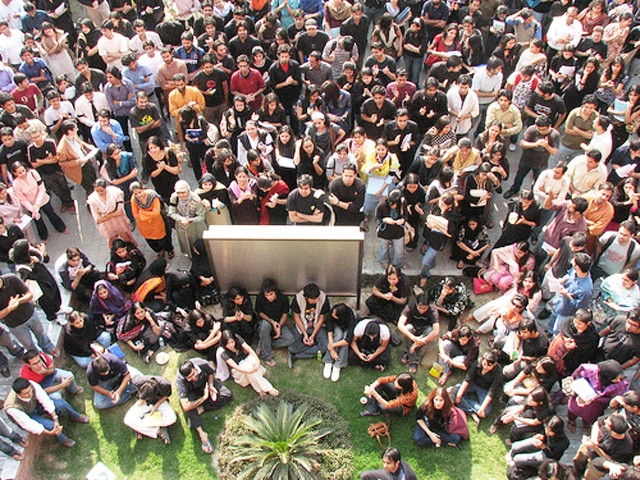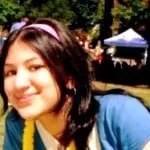A great deal has been said and written about the education emergency in our country.
However, the most disturbing statistics are not the ones about the number of children not being taught in schools; it is the ones about children who go to school and yet fail to develop the critical thinking skills Pakistan badly needs. As co-director of The Citizens Archive of Pakistan (CAP) School Outreach Tour, I work with 1,000 children in low-income schools in Karachi. It has taught me about educational methods in Pakistan in a way that no report or research paper ever can.
In one of my first teaching experiences, a confident little girl stood up in my fifth-grade class and offered to explain the word "democracy" for us.
"It's when there is a bomb blast and the media comes to photograph all the injured people" was the heartbreakingly innocent definition she gave.
There was no flippancy, no irony in her statement. That was when I realised that my job as a teacher in these schools is far more than teaching kids about the rivers in Punjab and our constitution. The real work that needs to be done is using the vast information that children are expected to memorise as tools for understanding society, analysing problems and growing up to be well-adjusted members of their communities. What we really need to ask ourselves is whether it is enough to simply build schools, if inside each one, children equate violence with democracy.
Geography is both taught and memorised in schools everywhere. Yet, in one of my classes, not one 12-year-old girl could tell me what a continent is, or for that matter, which continent we are on. I received confused, hesitating answers: "Sindh?", "Pakistan?"
These are the same children who were unaware that Karachi has a port or that the capital of the country is Islamabad. Something has to be going very wrong if my students, who are both intelligent and hardworking, are unable to understand concepts that are ordinarily grasped in primary school.
Stretching their geographic imaginations beyond their neighbourhood is a struggle, but who can blame them? Teachers who receive little or no training resort to having students copy facts from textbooks into their exercise books, with nothing being absorbed along the way.
When we showed these students animated videos about geography, engaged them in discussions about our environment and played quiz games to reinforce what they had learned, the results were heartening. Every single one of our students can now point out the provinces on a map, explain how agriculture and industry contribute to the economy and take part in thoughtful, often noisy, debate about forms of government.
Education in Pakistan is in a state of emergency, yes. It is easy to fall back and wring our hands about how we don't have the funds, the teachers, the resources. This may be true - we can certainly use more of all these things in our schools. However, what we need most, and what is abundantly available, is innovation, creativity and a little bit of love.
Two hours of interactive teaching every day, in five different schools, has given us the tremendous reward of seeing one thousand children grow in ways we thought impossible when we began. All it took was a desire to make learning fun for children, a challenge to force them to think and a little bit of optimism.
With schools closed for board exams these days, we are already itching to return.
Yes, it shocks us when 70 per cent of our students say that Americans were responsible for violence during partition.
Yes, it saddens us when the poorest of our students says that throwing bricks is the only way to have his voice heard in society. What keeps us going is that it makes us infinitely happy to receive a card at the end of a class that says "I love my teacher" and to come back to the office to read their ideas for a peaceful Pakistan.
Why fifth graders throw rocks and want peace
My student defined democracy as 'when media comes to photograph injured people after blasts'. We need to change...



COMMENTS
Comments are moderated and generally will be posted if they are on-topic and not abusive.
For more information, please see our Comments FAQ